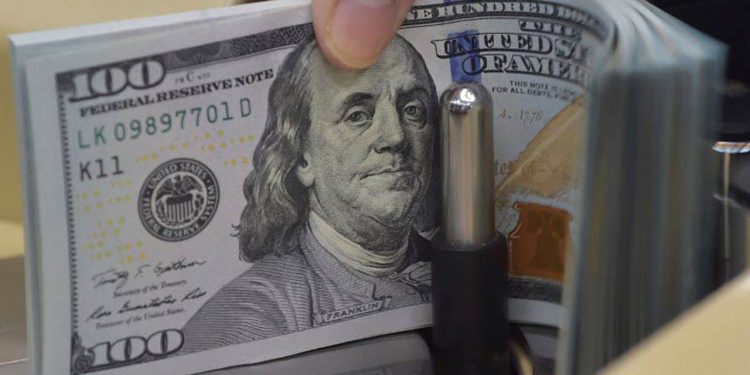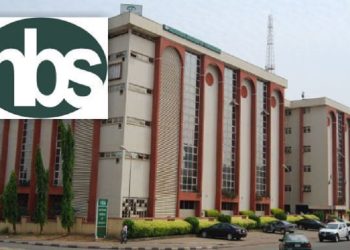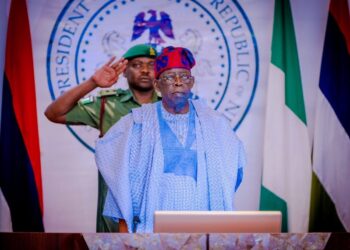Nigeria’s official exchange rate plummeted to a month-to-date low of N1300/$1 on Tuesday, April 23, 2024, as reported by data from the Financial Markets Dealers Quotations (FMDQ), the official platform for currency trading.
This decline marks a 5.05% depreciation from the N1,234.49/$1 rate observed at the beginning of the week, continuing the downward trend that emerged on Friday.
In just 5 days, the exchange rate has weakened by a staggering 17.4%, raising concerns among market participants about the Central Bank of Nigeria’s (CBN) ability to sustain recent gains in the currency’s value.
Key data highlights from the FMDQ reveal that the exchange rate closed at N1,300.15/$1, with a total daily turnover of $133.65 million. Daily turnover has witnessed an increase from the levels recorded on Friday and Monday, signaling heightened trading activity.
During the day, the exchange rate fluctuated between an intra-day high of N1,317 and a low of N1,000, with a disparity of approximately 30% on both ends. Black market sources also reported a similar trend, with the dollar quoting closer to N1300/$1 by late Tuesday amidst surging demand and concerns about further devaluation.
Recent data from the CBN for April 22nd indicates a marginal increase in Nigeria’s external reserve position to $32.109 billion from $32.106 billion, highlighting the ongoing efforts to stabilize the currency.
Amidst these developments, Central Bank Governor Yemi Cardoso declared the Naira as the best performing currency globally as of April 2024, attributing this achievement to foreign exchange market reforms and positive sentiment from international investment institutions.
Cardoso made these remarks during a press briefing at the World Bank/IMF Press briefing in Washington DC, emphasizing the strides made since March when the Naira faced significant devaluation pressures.
Addressing concerns about the central bank’s role in defending the currency, Cardoso clarified that market forces largely influenced the fluctuations observed, dismissing notions of direct intervention.
Furthermore, the CBN issued a new circular to all Bureau De Change (BDC) operators, announcing a fresh sale of forex at a reduced rate of N1,021 per dollar. This proactive measure aims to manage currency volatility and ensure the availability of essential foreign exchange amidst market uncertainties.
The recent fluctuations in Nigeria’s official exchange rate underscore the challenges faced by the central bank in stabilizing the currency amidst external pressures and domestic economic dynamics. As stakeholders monitor developments closely, the CBN’s interventions remain crucial in navigating currency volatility and sustaining investor confidence in the Nigerian economy.










